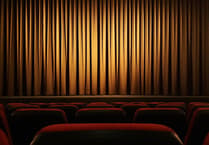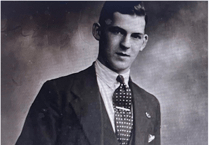The Bikeriders
Cert - 15, Run-time - 1 hour 56 minutes, Director - Jeff Nichols
Shortly after having seen The Bikeriders back in October someone mentioned to me that had it been released in the 70s it would likely be considered a classic. In the months since, the release delayed after the film was dropped by Disney with Focus Features picking it up, it's something I've thought about a lot in relation to the film.
Clearly inspired by a number of New Hollywood features, Easy Rider gets a mention, the overall aesthetic of 60s 'old school cool' runs throughout. So much of what we see comes down to the initial external appearance of the central Chicago motorcycle club. A group of largely family men who meet up to ride motorcycles and talk about riding motorcycles, only turned into a gang by a society which misperceives them, or sees the violence of young men who misinterpret the toughness of the groups. Based on a photo collection much of what we see comes across as a set of memories and instances captured by Mike Faist's journalist and photographer interviewing members of the club and those linked to them. In particular Jodie Comer's Kathy - a performance largely characterised by her accent - the wife of reckless Benny (Austin Butler), the man who could take over the group from Tom Hardy's Johnny if he was more careful. "Benny thinks that when you die you're better off than when living" his wife explains.
Perhaps we'd see him as more of a potential successor, and have more connection with his story, if Butler was on screen more. The film has been largely sold with him and yet despite being pitched as a lead he doesn't get enough to do to justify this.
Instead, we run through a selection of moments where the link is the recurring faces and their bikes. It's not until the second half that a more clear through line appears to help things lift above the aforementioned style that it really digs its fingers into in terms of both sound and visuals.
As the years pass and the club is moved aside for gangs and violence, and an increasing loss of control and challenges towards Johnny for his leadership, the film becomes more steady. It's here that a more consistent sense of engagement begins to emerge simply because there's more happening than something which could have been directly adapted and loosely worked around from the pictures which inspired it.
The feeling of "the end of the golden age of motorcycles" is certainly clear in the closing stages, and the build-up to them, and it certainly shows the influences on the film while getting across the drama now integrated into something which just started as a simple club for people to share a love of bikes. However, despite the attention to detail put into the sounds and images there needs to be more in terms of narrative to stop it feeling like a set of loosely-related memories and instances.
Three stars - Jamie Skinner




Comments
This article has no comments yet. Be the first to leave a comment.